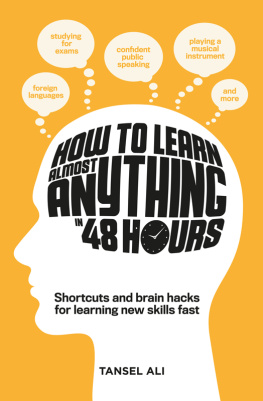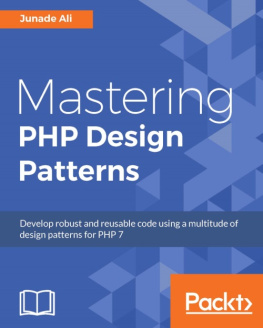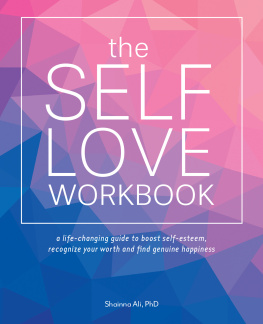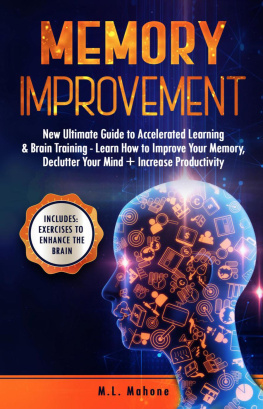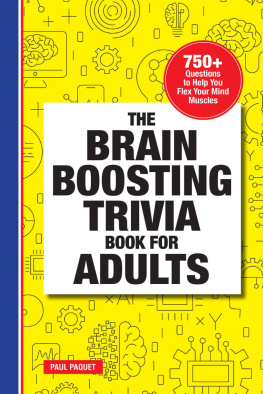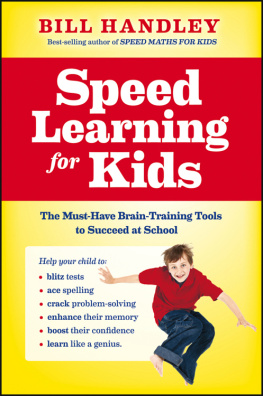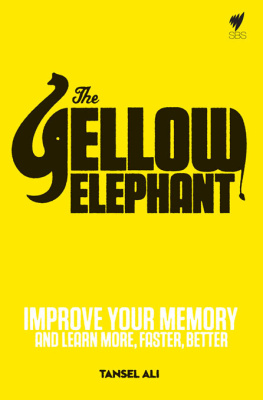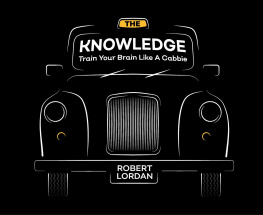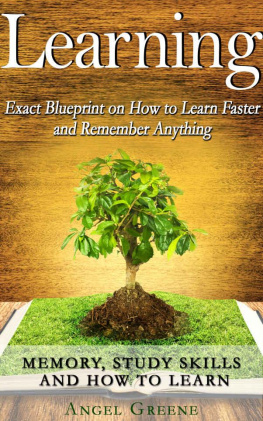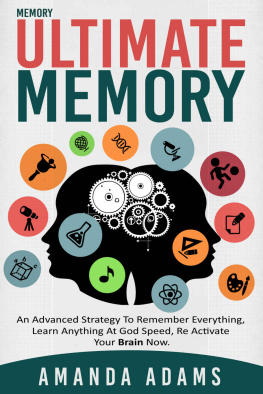
To My Father, Ali
CONTENTS
Over the next ten years education will be massively disrupted. Everyone will be ableto learn anything they want five to ten times faster than they do now. Tansel Alihas already started this disruption, and in How to Learn (Almost) Anything in 48Hours he introduces us to concepts and techniques that give the reader tools to learnanything in record time. This enjoyable book also provides practical exercises, tools,tips and tricks to practise these skills not traditionally taught in schools. Congratulationsto Tansel for leading the way to faster and better learning, and setting the groundworkfor the next decade of education. The future of learning is here.
Nolan Bushnell
Founder of Atari Corporation
March 2015
Below is a 7-step guide to learning almost anything in 48 hours. Applied with the techniques and tips from this book, it will create a structured process for you to follow and make sure youre on track to achieving learning success.
1. Gather materials and resources to learn (Up to 3 hours)
Youve made the choice to learn something. The first step then is to gather all theresources and materials you need to get started. If you were to learn a language,for example, the list of resources might include books, audio, websites and apps.It might also be helpful to find a native speaker with whom you can practise speakingthe language.
2. Develop memorisation strategy (Up to 2 hours)
Once you have gathered all you need, make a decision on the memory techniques youplan to use from this book. For example, if youre wanting to memorise a lengthylist, such as past presidents of the Unites States of America, you would look atusing the Method of Loci. If youre wanting to acquire knowledge fast, you wouldlook at developing a mind map of the content and using visualisation methods suchas SMASHIN SCOPE to create engaging associations in your mind with the knowledge.Reading this book will help with identifying the most relevant strategy. The morepractise you get at identifying which memory techniques to use, the better you becomeat developing a memorisation strategy.
3. Organise/prioritise materials (Up to 1 hour)
With your strategy developed, the next step is to organise the materials and resourcesyou have to fit inside your strategy. If your strategy was to memorise all 1500 Frenchphrases, then you will need to make sure you have your 1500 French phrases set outin a way that will make it easy for you to go through them one by one. One methodof doing that is to enter or copy and paste each phrase into a spreadsheet so thatit becomes easy to access.
4. Create accountability (Up to 1 hour)
It is important to share your learning task with a family member, friend, or anyoneelse that will hold you accountable. Accountability to others creates motivationto get you going so that you dont let others down. We do tend to slack off if weare accountable to only ourselves.
5. Memorise (Up to 30 hours)
Once you have all of your materials and have developed your process for learning,it is time for action. It is best to start with short periods of memorisation ratherthan long. The reason for this is that it is less strain on the brain, you will completea set memorisation period quickly, and as you get better you will increase your time.If you start with longer memorisation periods then it will overwhelm you very quickly.Keep it short and simple.
6. Review (spaced repetition) (Up to 1 hour)
Once you have memorised you will need to go back and review your work. This helpsto store your memorisation in long-term memory. Depending on what youre learning,of course, the rule for spaced repetition is to review an hour later, then a daylater, then a week later, a month later, three months later, six months later andfinally a year later.
7. Practise and apply (Up to 10 hours)
Once you have memorised and used techniques to achieve what you want, you will needto practise to give yourself feedback on your memorisation. This is the test ofhow much you have learned. If you have indeed memorised 1500 French phrases, go intoan environment where French is spoken and have conversations. Are you able to speakit? What works? What doesnt? Note all these down and figure out why these were thecase. Learn from them and then go back and re-memorise. Having the chance to practisewhat you have memorised is crucial to the learning process. Memorisation only helpsyou to store the information, whereas learning helps you understand. Practise isthe intersection where these two meet. So try to practise as much as you can and,before you know, you will learn anything you want to learn in record time.
Nothing is impossiblethe word itself says
Im possible!Audrey Hepburn
Time is perhaps the most precious thing we possess. We only have it once, its notrenewable and we could all use it better. We can be so entrenched in our daily livesthat, in spite of our desires, we cant seem to find the time to better ourselves,pursue our hobbies and participate in activities we love. I frequently hear peoplesay they wish they could learn a language, play a musical instrument or even hangout with their family moreif only they had the time. But then time passes, and nothingchanges. We need to remind ourselves, as many philosophies and religions espouse,that all we have is now. How to Learn (Almost) Anything in 48 Hours gives you newskills to learn things that you never thought possible, and to make sure your timeis used effectively.
Today at the touch of a few buttons we have access to far more information than wecould ever need. Were not just bombarded with information from online but from schools, universities, short courses, seminars, workshops and conferences. Unfortunately,our brains are often unable to cope with the relentless volume of data from multiplesources day after day. Information overload is a real problem and can cause anxietyand stress. The knock-on effects of stress may mean increased forgetfulness, andreduced confidence, self-esteem and productivity. Learning should be exciting andfun and never frightening. With that in mind, this book is a deliberate, consciousdisruption to traditional learning methods, especially that of rote learning.
Studying memory has made me appreciate that the brain is far more amazing than mostof us realise. The idea for How to Learn (Almost) Anything in 48 Hours came aboutafter I memorised two Yellow Pages phone books in only twenty-four days. I reasonedthat the techniques and strategies that helped me do that could be used by everyoneto learn faster and better, and the memory techniques explained here apply to allforms of information-based learning.
No matter what your school grades, class, culture or environment indicate, I believeyou can learn anything you want to. Nothing is too difficult. People who have learnedthese memory techniques have gone on to learn languages in record time, memorisebooks, shine as elite athletes, dazzle as public speakers, and become outstandingleaders and people of influence such as inventor and entrepreneur Elon Musk and basketballstar LeBron James. You do not require a degree or need to have blitzed special examsto have this knowledge. You just need your imagination and the will to try.


